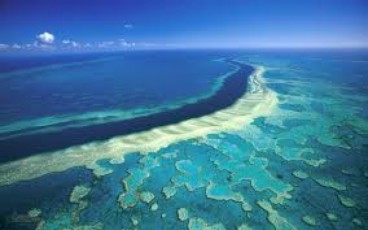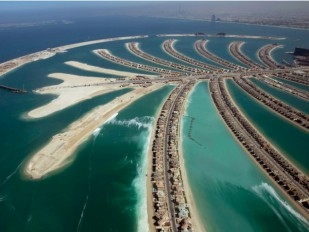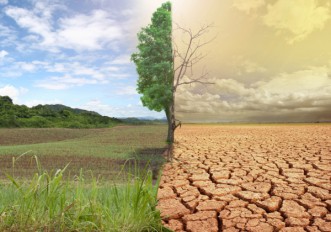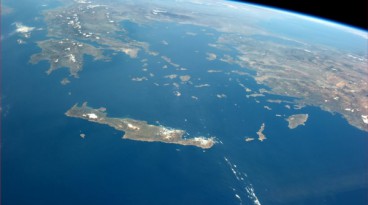Chemical-based sunscreens to be banned in Hawaii by 2018

The substance Oxybenzone has been found to have toxic effects on young corals causing endocrine disruption, DNA damage and even death
The substance Oxybenzone has been found to have toxic effects on young corals causing endocrine disruption, DNA damage and even death
There is rising awareness globally regarding chemicals contained in sunscreens that cause irreparable damage to reefs, especially in the tropics where researchers have tested high levels of oxybenzone in Hawaii islands’ waters. This is one of the chemicals that have been blamed to kill corals and negatively affect other marine organisms. At the end of the 13th annual Coral Reef Symposium in Waikiki, Hawaii last June, Senator Will Espero said he will introduce legislation to ban sunscreen with oxybenzone beginning in 2018. ‘A ban is the right thing to do in order to protect our fragile marine eco-system. Since our ocean environment is key to our tourism industry and our economic lifeline, banning a chemical substance that harms our coral and other marine animals should be a top priority next year in the state legislature’, he said. There is also a petition running to support his thesis.
Chemicals are a new threat compounding the damage done by climate change
According to a recent study, oxybenzone has incredibly toxic effects on the young corals – it causes endocrine disruption, DNA damage and even death, and a single drop of sunscreen in a small area is all it takes for the contained chemicals to mount an attack. And even though about 80% of reefs in the Caribbean have been lost in the last 50 years, their presence is crucial to the livelihoods of 500 million people in the tropics. Currently, somewhere between 4,000-6,000 tons of sunscreen enters coral reef areas around the world each year, according to the U.S. National Park Service. "If we can reduce the impact, the load of these chemicals on corals, they will be more resilient to climate change," said Director of Marine Safety Mirella Von Lindenfels. Climate change and ocean warming are already threatening the reefs, affecting ecosystems from polar to tropical regions. In East Africa and the Western Indian Ocean, for example, ocean warming has reduced the abundance of some fish species by killing parts of the coral reefs they depend on.
Source: KITV-Honolulu
Source: KITV-Honolulu
Want to read more like this story?

Australia’s Great Barrier Reef is about to die
Dec, 21, 2016 | NewsThe world’s largest coral reef is threatened by climate change The world’s largest co...

3D-printed ceramic helix structures aid reef recovery and coastal resilience
Oct, 03, 2025 | NewsResearchers at the University of Hawaiʻi at Mānoa have developed and field-tested novel 3D-printed...

Study quantifies human infrastructure on oceans for the first time
Aug, 31, 2020 | NewsScientists from Australia and the United Kingdom managed to quantify the manmade constructions that...

This giant steel kraken was purposely sunk with an old WW2 ship, to create an artificial coral reef
Oct, 24, 2017 | NewsThe project, titled BVI Art Reef, is located near the British Virgin Islands The project, titled BV...

Revolutionary 3D-Printed Clay Reefs Enhance Biodiversity in the Maas River
Jul, 10, 2024 | NewsInnovative Solution for Erosion Control Rijkswaterstaat is implementing a groundbreaking solution...

Climate change could cause over 500,000 extra deaths in 2050
Apr, 04, 2016 | NewsHealth impacts due to changes in agricultural production are currently examined Health impacts du...

Chemical plant explosions in Houston, TX after Hurricane Harvey flooding
Sep, 04, 2017 | NewsThe company said it had no time to prevent fires, while some experts believe that the plant should n...

Cities to live in to escape climate change
Nov, 11, 2016 | NewsA list of the most climate change-adaptive cities in North America A list of the most climate cha...

Horror Scenario For Coastal Areas
Jul, 29, 2015 | NewsClear warning from scientists, who note that the sea level rise may not be avoided even if the gover...
Trending

Vertical gardens in Mexico City to combat pollution

Saudi Park Closed After 360 Big Pendulum Ride Crashes to Ground, 23 injured

Characteristics of Load Bearing Masonry Construction

Taipei 101’s impressive tuned mass damper

Dutch greenhouses have revolutionized modern farming

Federal court rules Biden’s offshore drilling ban unlawful


